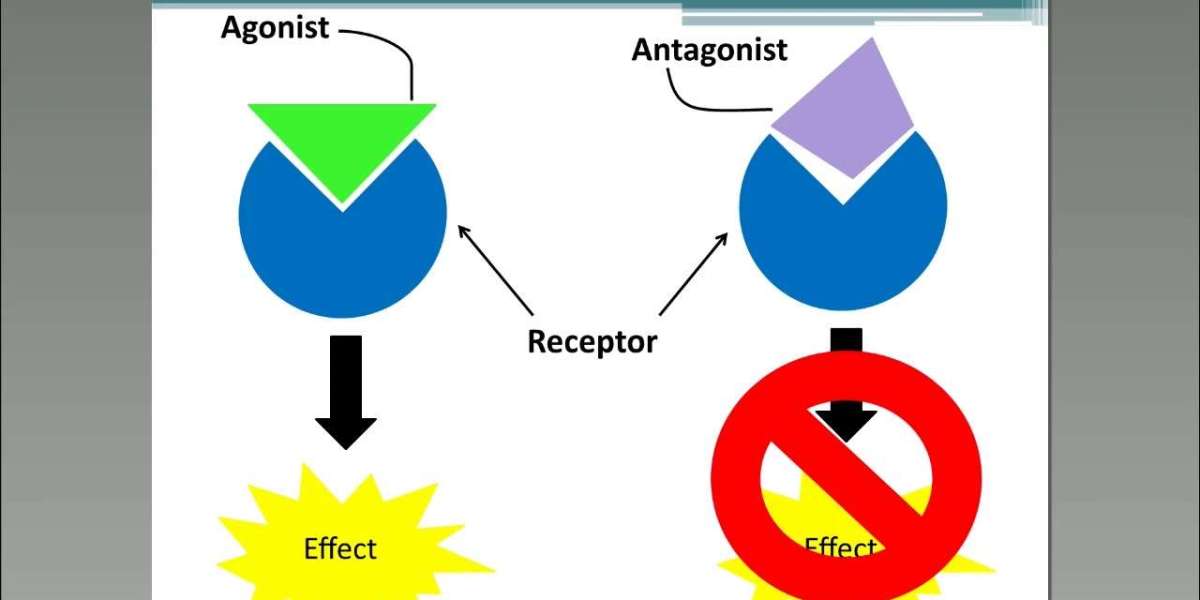Parkinson's disease is a progressive neurological disorder that affects movement, causing symptoms such as tremors, stiffness, and difficulty with coordination. It occurs when dopamine-producing nerve cells in the brain decline, leading to a shortage of this essential neurotransmitter. Although there is no cure for Parkinson's disease, various treatment approaches, including medication, help manage its symptoms effectively.
One of the most important components of Parkinson disease treatment in Hindi and other languages worldwide is medication. Among these, dopamine agonists play a crucial role in managing the condition and improving the quality of life for patients.
What Are Dopamine Agonists?
Dopamine agonists are a class of drugs that mimic the action of dopamine in the brain. Unlike levodopa, which converts into dopamine, dopamine agonists directly stimulate dopamine receptors, helping to control movement and other symptoms of Parkinson's disease.
How Dopamine Agonists Work
These medications bind to dopamine receptors and activate them, compensating for the natural loss of dopamine. By doing so, they help alleviate symptoms such as:
- Tremors
- Stiffness
- Slow movement (bradykinesia)
- Balance issues
Commonly Prescribed Dopamine Agonists
Some of the most frequently prescribed dopamine agonists include:
- Pramipexole
- Ropinirole
- Rotigotine (available as a transdermal patch)
- Apomorphine (used for advanced Parkinson's cases)
These medications can be used alone in the early stages of Parkinson's or in combination with levodopa in later stages.
Benefits of Dopamine Agonists in Parkinson’s Treatment
Dopamine agonists offer several advantages for people living with Parkinson’s disease. Some of the key benefits include:
Longer Effectiveness
Unlike levodopa, which can lead to motor fluctuations over time, dopamine agonists have a longer duration of action and are less likely to cause "on-off" episodes, where symptoms unpredictably worsen.
Reduced Risk of Dyskinesia
Dyskinesia (involuntary movements) is a common side effect of long-term levodopa use. Since dopamine agonists do not undergo the same metabolic conversion as levodopa, they lower the risk of developing these movements.
Flexible Dosing Options
Many dopamine agonists are available in different forms, including oral tablets, patches, and injectable solutions. This flexibility allows doctors to tailor treatment plans to individual needs.
Potential Side Effects and Risks
While dopamine agonists are effective, they are not without side effects. Patients and caregivers should be aware of potential risks to make informed decisions about treatment.
Common Side Effects
Some of the most common side effects of dopamine agonists include:
- Nausea and vomiting
- Drowsiness and fatigue
- Dizziness and low blood pressure
- Swelling in the legs
Impulse Control Disorders
One of the significant concerns associated with dopamine agonists is the risk of impulse control disorders. Some patients experience compulsive behaviours such as:
- Gambling
- Overeating
- Excessive shopping
- Hypersexuality
If these behaviours arise, patients should consult their doctors to adjust their medication.
Hallucinations and Confusion
Elderly patients or those in later stages of Parkinson’s may experience hallucinations, confusion, or paranoia. Adjustments in dosage or alternative medications may be required in such cases.
Dopamine Agonists vs. Other Parkinson’s Medications
When choosing a Parkinson’s disease treatment plan, doctors consider various medications based on the severity of symptoms, patient age, and overall health.
Dopamine Agonists vs. Levodopa
Feature | Dopamine Agonists | Levodopa |
Mode of Action | Directly stimulates dopamine receptors | Converts into dopamine |
Effectiveness | Moderate to high | Highly effective |
Risk of Dyskinesia | Lower | Higher with long-term use |
Duration of Action | Longer | Shorter |
Side Effects | Higher risk of impulse control issues | More predictable |
Combination Therapy
In many cases, doctors prescribe dopamine agonists along with levodopa to achieve better symptom control. This approach helps reduce levodopa dosage and delays complications such as motor fluctuations.
The Role of Health Insurance in Managing Parkinson’s Treatment
Managing Parkinson’s disease requires long-term medical care, frequent consultations, and ongoing medication, making Health Insurance essential for patients and their families. Given the cost of dopamine agonists and other therapies, having a comprehensive health insurance plan ensures financial security while accessing the best possible care.
Why Consider Critical Illness Insurance?
Since Parkinson’s disease is a progressive condition, it may qualify for Critical Illness Insurance. This type of policy provides a lump sum payout upon diagnosis, which can be used to cover medical expenses, caregiving costs, or lifestyle adjustments. Patients and caregivers should explore insurance options early to ensure coverage when it is needed most.
Niva Bupa’s Role in Healthcare Planning
Selecting the right health insurance provider can make a significant difference in managing chronic conditions like Parkinson’s. Niva Bupa offers comprehensive plans that include coverage for critical illnesses, ensuring that individuals receive timely medical care without financial strain.
Tips for Managing Parkinson’s Disease with Medication
While medication plays a crucial role in Parkinson’s disease management, lifestyle modifications and proactive healthcare planning enhance overall well-being.
Adherence to Medication Schedule
Dopamine agonists work best when taken consistently. Patients should:
- Follow the prescribed dosage and timing
- Avoid skipping doses
- Discuss any side effects with their doctor before making changes
Regular Medical Check-ups
Frequent doctor visits help monitor disease progression and adjust medication as needed. Neurologists may recommend additional therapies, such as physiotherapy or speech therapy, for comprehensive care.
Healthy Lifestyle Choices
Maintaining overall health can improve Parkinson’s symptoms. Some beneficial lifestyle changes include:
- Engaging in regular exercise (yoga, walking, swimming)
- Eating a balanced diet rich in antioxidants
- Practising stress management techniques like meditation
Support from Caregivers and Community
Caregivers play a crucial role in helping patients manage their condition. Support groups, online forums, and Parkinson’s disease foundations offer valuable resources for both patients and families.
Conclusion
Dopamine agonists are an integral part of Parkinson disease treatment in Hindi and across the world. They offer a viable alternative or supplement to levodopa, helping patients manage symptoms effectively. However, like all medications, they come with potential risks and side effects, which need to be carefully monitored.
Planning for the long-term care of Parkinson’s disease involves not just medical management but also financial security. This makes Health Insurance Planning and Critical Illness Insurance essential considerations for patients and families. By choosing the right insurance coverage, individuals can ensure access to quality treatment without undue financial burden.
If you or a loved one is navigating Parkinson’s disease, consult a healthcare professional to discuss the best medication plan, and explore insurance options that provide comprehensive support for long-term care.


